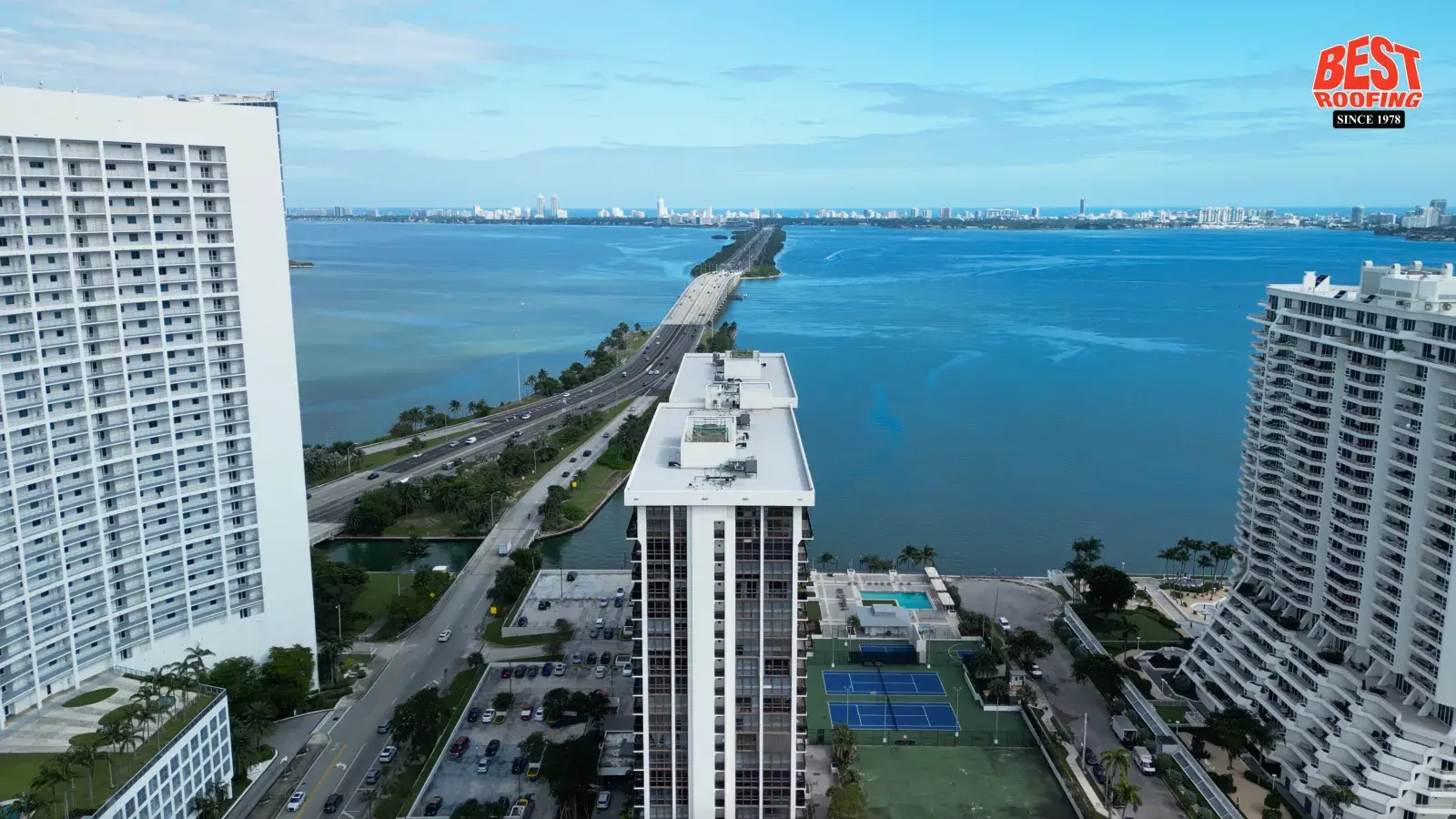
Commercial Roof Collapse: Steps to Prevent Tragedy
On Thursday April 13th, 2023, Fort Lauderdale Florida received more than 25 inches of rain in less than 8 hours. This historic event wreaked havoc on residents, forcing them to abandon their vehicles and seek higher ground.
South Florida sees plenty of rain, so what made this storm so destructive?
· The system designed to drain the streets and roadways couldn't handle that amount of rain.
· The drainage system failed to move the water, and the results were disastrous.
Among the destruction, one commercial property was left in shambles after the roof system failed and collapsed. In the tropical environment of South Florida, where powerful storms and hurricanes are part of daily life, few events strike fear into the hearts of commercial property experts like a roof collapse. These devastating incidents can lead to significant property damage, business disruption, and potential harm to individuals.
There are two main causes of a commercial roof collapse and in the eyes of your insurance carrier, both causes fall under the term "negligence".
"You must maintain the insured property in good repair and take all reasonable steps to safeguard it."
1. Roof Drains: Why Are They Important?
In hurricane-prone South Florida, heavy rainfall is a common occurrence. Consequently, roof drains play a critical role in maintaining the structural integrity of commercial roofs. The drainage system of your commercial roof is like the system used by your city for streets and roadways. The drainage system must be carefully designed to ensure it can swiftly move water off your roof to prevent the excessive weight of accumulated water from causing structural stress. Then the drainage system must remain operational and clear of debris.
Debris like leaves or trash can clog the drains on your roof, leading to water pooling or "ponding". Ponding water can pose an immense burden on the roof structure, particularly during a heavy downpour from a storm or hurricane. Over time, this additional weight can lead to sagging, structural compromise, and ultimately, collapse. Ponding water can also accelerate wear and tear on your roof membrane, voiding your warranty, and leading to the formation of leaks.
2. Unnoticed Leaks: The Silent Destroyer
Even minor leaks, if left unchecked, can cause serious damage to your commercial roof. Water infiltration can cause the roofing materials and the supports under your roof to deteriorate, leading to weakened structural integrity and, over time, a roof collapse. These silent destroyers can become worse with frequent storms and hurricanes.
Leaks often go unnoticed until significant damage has occurred. The initial signs can be subtle, such as discoloration of ceiling tiles, peeling paint, or increased humidity. In some cases, a roof leak could exist for years before the evidence becomes visible inside your property.
How to Prevent a Roof Collapse
In the face of South Florida's hurricane season, regular roof inspections are crucial. These inspections should be carried out at least twice a year and after any severe weather events. A professional roofing contractor can identify potential issues like blockages in the drain or small leaks that might not be visible to the untrained eye.
Regular cleaning of your roof and drains is also essential to prevent debris accumulation and subsequent clogging. For leaks, prompt repairs at the first signs of water infiltration can save the building from disastrous damage. This could range from patching a small area to replacing a roof section, depending on the severity of the leak.
In conclusion, neglecting regular maintenance and inspections can lead to significant damage, including a roof collapse. The heavy rains of South Florida make being aware of the hazards of clogged drains and unnoticed leaks especially vital. Remember, an ounce of prevention is worth a pound of cure, particularly when it comes to the safety and integrity of your commercial property.
Submit your information below to receive your free roof inspection from one of our Forensic Roof Specialists.
- Photo report of your roofs current state.
- A dated inspection report for your records.
- Complimentary "Life Cycle Analysis", how long your roof has left.
- A detailed breakdown of any items that need attention.


